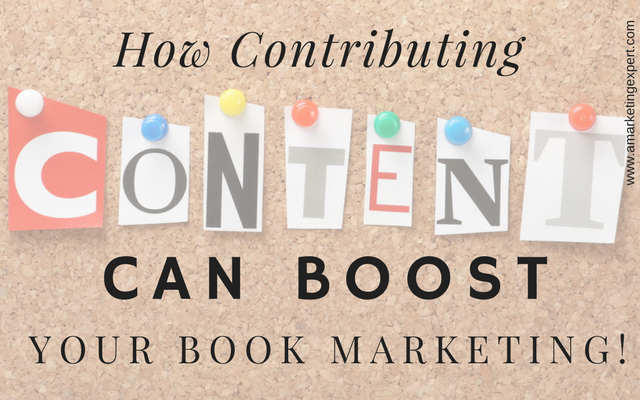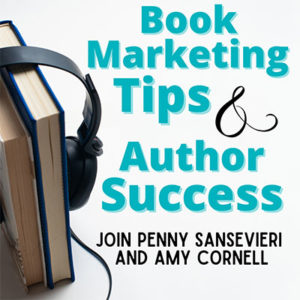Solidifying your position as a thought leader should be a top goal for your book marketing plan. This is especially if you’re an indie author writing about business, success, health and wellness, or self-help.
Contributing content via guest blogging or guest posts is about building your business, expanding your audience, and ultimately, driving more traffic to your products, services, events, of course your book. Identify what your short and long term goals are for your business or brand.
But where do you start?
Brainstorm What Makes You Unique
What can you bring to the table that makes you unique? Yes, you may be a professional in an area where it feels like everything has been said, but if that’s the case, why did you write a book?
Dig deep and figure out what makes your approach, your opinion, or how you deliver your knowledge stand out from your peers and competitors.
Make a list of what makes you stand out, what you’ve done differently, and what specific areas you’re most passionate or knowledgeable about.
Recognize Opportunities Right in Front of You
As part of your efforts to stay on top of your topic, and improve your book marketing game, you should be reading other sites and blogs. See what the competition is up to, what they’re doing right and maybe what they’re missing.
Creating and forging these relationships are crucial to book marketing.
Assuming there are sources you respect and return to again and again, it’s worth asking the site owner or their editorial team if they ever accept guest posts.
You should have an edge here since you know what kind of content they like to publish, use that to your advantage when pitching them ideas.
Plus you have a genuine opportunity to thank them for what they do and let them know you’ve found their content useful. This is good networking in general. Maybe there isn’t an opportunity for contributing content now, but making the connection could drive something your way in the future.
Go Opportunity Hunting
There are a number of resources out there that help you figure out which blogs and sites accept guest content.
Of course policies change all the time so I’d recommend getting leads and ideas from a couple different sites.
Peter Sandeen has a great list of leads and some good advice overall regarding conversion that you can apply to your indie author book marketing, and then there are sites like Guest Post Tracker that let you search for opportunities by topic and provide a service for tracking your submissions.
Combine Opportunities with Your Unique Approach
So now that you’ve found great sources for opportunities, check out a handful that interest you most and take notes on what they publish. What seems to get the most comments and shares (if they make that information public)? Do they tend to favor certain formats like interviews, lists, or how-tos?
Once you get a feel for what they like, and presumably what their readers like, marry those notes with your list of what makes you unique or where you’re strongest in your market or industry.
A combination of these two factors will make you a really strong competitor and will take your pitch to the next level.
Fine-tune Your Pitch
How you pitch is almost as important and what you pitch. When it comes to pitching media, less is truly more.
Imagine if you were working the CBS Evening News and you had to ferret through 1,000 pitches a week? That’s not an exaggeration, and often these numbers are considerably higher.
As you develop the perfect pitch, keep in mind that your subject lines are often more important than your pitch. If your email subject line doesn’t get people to open your email, then what’s the point of the pitch, right?
Keep it short and snappy and most of all, relevant.
Back Up Your Statements
Whatever statements you make need something weighty to support them.
This is a book marketing strategy that a lot of indie authors forget about, sadly. The best way to set yourself apart from the many unprepared indie authors out there.
Cite studies if you have access to them, or cite other stories that have been done on this while pointing out what you’re bringing new or different to the conversation. This shows the topic is relevant but you can discuss it in a new way.
Facts and statistics are important aspects of your pitch that help you prove the importance and relevance of what you’re presenting.
Tie Into What’s Trending
Hot news stories, current events, lifestyle trends and holidays should all be taken into consideration when you’re crafting your pitch and fine tuning your book marketing strategies in general.
Why? Because the tie in already makes you relevant, it makes it easier for the media outlet to say yes. You’re playing their game by their rules – they like that.
These are some subject lines we’ve used recently this year to pitch national media. They were very relevant and timely with tie-ins to current news that got us some great responses:
- Is Post-Election Stress Disorder Killing Us?
- Will Technology Vaporize Your Job?
- Is Fake News Making You Sick?
- Is Your “Cold” More Than Just a Virus?
Make Yourself Look Good
Your pitch is like a job interview. A well-prepared pitch that hits all the key requirements is far more likely to be accepted:
- Read the site’s guidelines, follow formats, subject line rules, etc.
- Personalize your email to the recipient
- If you already have a strong following somewhere, like on Twitter, highlight it
- If you’ve contributed to another site in the recent past include a link
- Tell them why you’d be a great contributor: what makes you unique
The Takeaway
Remember you can’t do any book marketing in a vacuum. You must be out there in other ways, blogging and sharing your content, your knowledge and your unique opinions on social media. You should also be pitching yourself for interviews, which is another way to get your knowledge “out there”.
Making yourself attractive to the media is sort of like applying for a job.
Your resume is polished, you show up, and have your expertise ready to share!
Do you want to build your reputation, your business and your exposure? Contact us today if you would like your personalized assessment and strategy recommendations.





Creating an online persona takes time, and if done flawlessly, gives amazing reward. I fully support your advice that we making ourselves attractive on social media is just like applying a job. Once an employer got attention of your thoughts, you will certainly be contacted to deliver some content development related tasks. Its like branding ourselves.
Thank you so much for reading and for your feedback!
Great post thanks for the post! Visit our blog Wedding Guest posts/